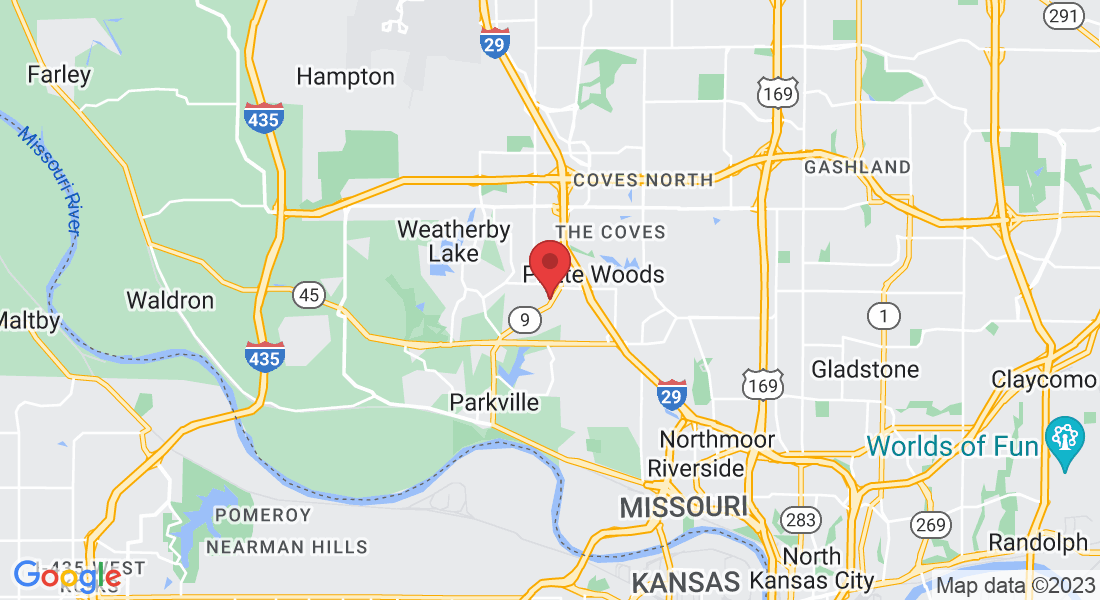
Kansas City Real Estate Market
Kansas City Real Estate Market: What You Need to Know
You can feel the anticipation in the air– Kansas City is a hotbed of activity, and the real estate market is no exception. With rising home values and an increasingly diverse landscape, it’s no wonder that people are flocking to the City of Fountains. But with great opportunity comes great responsibility. Before you buy, invest, or rent, it’s important to know and understand the nuances of the local market. So let’s dive in and discuss the Kansas City real estate market: What you need to know.
Quick Insight into Key Points
The real estate market in Kansas City is currently experiencing steady growth. Home values are continuing to rise, making it a great time for both buyers and sellers in the area.
Overview of the Real Estate Market in Kansas City
The Kansas City real estate market is rich and diverse, presenting a wealth of opportunities for both buyers and sellers. Located in the Midwest with a diversified economic base, strong job growth, low taxes, and a mild climate, Kansas City has become one of America’s most attractive markets for living and investing in real estate.
Kansas City has seen steady growth in its housing prices over the past year, with average current prices ranging from $118,000 to $250,000 depending on the location and size of the property. The city is experiencing a healthy appreciation rate of 1-3% per quarter, which has led to greater competition among buyers who are looking for the right home or investment property.
On the other hand, higher prices vary drastically by neighborhood. Real estate prices are often higher in more developed or sought-after neighborhoods compared to entry-level areas. Therefore it is essential that prospective buyers evaluate each individual neighborhood before making an investment decision.
Overall, market conditions indicate that this could be a good time to engage in the Kansas City real estate market whether you are buying or selling. The booming economy and good demand for properties are making it more difficult to find investment opportunities; however, there are still excellent deals available if you look hard enough. Next, we explore current housing prices in Kansas City to get a better perspective on the market overall.
Key Points
The Kansas City real estate market is an attractive and diverse market with steady appreciation rates and increasing competition among buyers. The average price of housing ranges from $118,000 to $250,000 depending on the location and size of the property; however, prices can differ drastically between neighborhoods. Overall market conditions indicate that it could be a good time to buy or sell in the Kansas City real estate market with attractive deals still available if you look hard enough.
Current Housing Prices in Kansas City
In Kansas City, median house prices have risen steadily over the last several years, with home values up 6.5% from last year. The average home price in Kansas City is around $221,000 for a single-family home, and slightly more for second homes and luxury properties.
The current housing market in Kansas City is considered healthy as most areas are seeing steady increases in property values. With increasingly competitive bidding wars, individuals selling their homes are often able to get well above asking prices. That being said, there are still bargains to be found throughout the area if you know where to look and are willing to put some work into an older home.
A key factor driving up real estate prices in this market is the booming economy of Kansas City. From restaurateurs to tech start-ups, entrepreneurs and businesses have noticed the great potential that this city offers, prompting real estate values to rise as the job market continues to attract companies from other states.
On the other hand, factors such as politics, markets, and interest rates can also influence property values — but it’s important to keep perspective when making investment decisions. Many times these broad forces can’t be controlled by investors and present just as many opportunities as risks.
Overall, the current housing prices in Kansas City point toward a healthy and growing market with decent ROI (return on investment). It may not make sense to rush into buying property in an inflated market with no return on your investment but doing proper research can help buyers make smart decisions that maximize potential returns while minimizing risk.
With that in mind, the next section will examine some of the major factors influencing the Kansas City real estate market today.
Showcasing Your Property’s Features
The Kansas City real estate market is affected by a variety of factors, some of which should be considered when making decisions about buying and selling in the area. Economic conditions, population growth, housing supply and demand, mortgage rates, and competition from investors can have a significant influence on the market.
Economy: A strong local economy helps attract new buyers to the area and encourages existing homeowners to stay put. When unemployment is low and wages are growing, people have more purchasing power and are more likely to invest in real estate. Conversely, if the economy weakens or goes into recession, it can cause declines in home prices that may take years to recover from.
Population Growth: As more people move into an area, it increases the demand for real estate. This can push prices higher as buyers compete for limited housing inventory. However, it’s important to pay attention to where people are moving within the city – some neighborhoods may experience greater appreciation than others due to their location or amenities.
Housing Supply & Demand: Housing supply affects housing prices in many markets, including Kansas City. In areas with limited supply relative to demand, prices tend to go up as buyers compete for fewer homes. In areas where there is oversupply, prices will typically go down as there are more properties available than potential buyers.
Mortgage Rates: Interest rates play a key role in the market; when rates are low it makes financing less expensive for prospective buyers and often leads to increased sales activity. Higher rates make loans slightly less affordable for some borrowers. It is important to monitor changes in interest rates in order to make informed buying decisions.
Competition from Investors: Many times investors are willing to take on properties that traditional owners don’t want because they can see potential profit margins in buying and fixing up a property. This type of buying can drive prices up quickly since investors sometimes pay cash or use other strategies not available to most individual buyers. On the flip side, if investors start selling quickly it can lead to lower prices as they try to maintain their profit margins.
The combination of these factors has created a unique environment for both buyers and sellers in Kansas City’s real estate market – one that requires careful consideration before making any moves. Now let’s take a closer look at some recent changes in market conditions that may affect transactions going forward.
Recent Changes in Market Conditions
The Kansas City real estate market has recently seen a few major changes in conditions. In recent months, prices have risen after a slight dip caused by the coronavirus pandemic earlier in 2020. While some experts have argued that this is just a “temporary interruption,” others have suggested that there may be more lasting effects resulting from the pandemic.
Regarding demand, there has been a slow increase in potential buyers in the wake of the pandemic as mortgage interest rates remain relatively low. At the same time, however, there is an increasing awareness of health concerns due to COVID-19 and other restrictions related to moving such as increased requirements for admissions tests and virtual tours. The slowing of interstate traffic also impacts local vacation markets and activity within those markets.
There are also concerns about future supply with some experts forecasting trends towards smaller residential units due to rising property costs and increasing rental landlord requirements. This could result in a decrease in available single-family unit housing options and may put additional strain on already tight inventory levels.
The combination of these factors makes it difficult to predict where the market will go going forward. Overall, though, it appears that the Kansas City area is seeing positive signs indicating an eventual recovery in market conditions despite the pandemic’s effects on the city’s economic structure.
Investment opportunities in Kansas City could be a great way to capitalize on these changing market conditions. Savvy investors will be able to take advantage of newfound tax incentives and possibly benefit from appreciation as properties are renovated and priced attractively to capture the attention of potential buyers. The next section will discuss the different types of investment opportunities currently available in Kansas City along with some tips for selecting high-potential investments.
Investment Opportunities in Kansas City
For savvy investors, the Kansas City real estate market presents an abundance of investment opportunities. There are both low-risk and high-return options to explore, whether you’re a first-time investor or an experienced pro.
If you’re willing to accept higher risks, investments in fixer-upper homes—also known as “flipping”—can prove to be lucrative. Compared to other markets, in Kansas City, you can find a great deal on undervalued houses if you look hard enough. With property values on the rise, there’s the potential for hot returns. Additionally, investing in affordable multi-family housing is an option, as buying a duplex or apartment building can yield multifold profit upon sale if it’s rented out and properly maintained over time.
On the other hand, there are also lower-risk investments in turnkey properties that have already been renovated and are tenant-ready to provide steady rental income each month. These sought-after properties require less work on the part of the investor and come with fewer complications down the road. They may offer slightly lower returns than alternative investment opportunities but provide a steady return over time.
Finally, for those who don’t mind remote management of their rental units, purchasing out-of-state investment properties can afford investors a larger pool of tenants or higher rental prices than what could be obtained in Kansas City alone.
Overall, what kind of investments make the most sense for you depends on your goals and risk tolerance. Investing in any market should always be done with caution and an understanding of what’s involved in owning and/or managing each asset.
Regardless of which path you choose to take within Kansas City real estate market investments, having an experienced local expert by your side is key to success. From navigating local laws to finding good deals, having knowledge and experience on your side is invaluable when it comes to making smart decisions with your money.
Now that we’ve explored investment opportunities within the Kansas City real estate market, let’s take a closer look at neighborhood trends to help buyers and sellers gain more insight into this market.
According to Zillow, the median home value in Kansas City was $190,100 as of June 2020.
Over the past year, home values in Kansas City have increased by 5.3%.
In June 2020, the median list price per square foot for homes in Kansas City was $117.
Neighborhood Trends for Buyers and Sellers
When it comes to purchasing or selling real estate in Kansas City, neighborhood trends can make all the difference. Potential buyers, should be looking at what amenities and changes are coming to different areas such as access to public transportation, walkability, and shopping and dining options. For sellers, understanding what type of home is most desirable by potential buyers can put them in a better position to get the price they want.
Buyers may look for different amenities in different neighborhoods. Those wanting more urban living could look for neighborhoods with nightlife, easy access to transportation, and plenty of places to eat and shop nearby. Whereas those wanting more upmarket living may look for locations more central within the city limits that are within close proximity of upscale bars & restaurants, parks, and other attractions such as museums. Buyers who have families may prefer neighborhoods with good schools nearby and other amenities that appeal to families like playgrounds and recreational centers.
Sellers must consider what trend their house falls into as compared to other properties in the same area. Homes that feature modern updates or additional living space would generally fetch a higher price than houses with fewer features. Sellers must also be aware of any future developments or changes in the neighborhood which could affect the value of their property. Understanding their home’s unique features relative to their neighbors can give them a better idea of what kind of offers they will receive when selling.
The right location can mean all the difference when it comes to buying or selling real estate in Kansas City. Knowing current trends and assessing potential developments will enable buyers and sellers to make informed decisions about where to invest their time and money. With that said, are rental properties a good investment? We’ll explore this topic further in the next section.
Are Rental Properties a Good Investment?
Rental properties can be a great investment, but they can also come with a number of risks. On one hand, owning rental property allows you to generate passive income while increasing your asset value over time. In addition, tenants typically pay for all or part of the mortgage, taxes, and maintenance costs associated with their rentals. As a result, you get to enjoy the benefits of real estate ownership without needing to have a large sum of money initially invested.
On the other hand, there are some potential downsides to investing in rental properties. For example, unexpected repairs can prove to be costly and put a strain on your pocketbook. Additionally, finding good tenants that take care of your rental property often requires substantial amounts of time and energy. If you don’t properly vet potential tenants or use the wrong contract terms during their rental agreement, you may run into serious financial trouble over the years.
Therefore, it is important to carefully weigh the pros and cons associated with rental property investments before jumping in head first. Professional advice should always be sought when making such decisions about your financial future.
With that said, those who have done adequate research and are prepared for any potential obstacles may find great success investing in rental property in the Kansas City real estate market. In the next section, we will discuss some tips for individuals interested in investing in this lively market.
Tips for Those Looking to Invest in the Kansas City Real Estate Market
Those looking to invest in the Kansas City real estate market should do their research and build a strategy before embarking on their venture. Evaluating locations, researching pricing trends, and enlisting help from a reputable real estate agent can make a significant difference in the success of investors’ investments.
Location is key when investing in real estate. Looking at economic factors like job availability, median income, and population growth can offer insight into the current market conditions of an area. Shopping around for the right investment areas within Kansas City is a worthwhile exercise as it will give investors an idea of where they want to focus their activities.
It’s important to stay up-to-date with pricing trends within the local market. Real estate can be volatile and prices can quickly change, so arming oneself with knowledge of current market trends helps reduce risk. Understanding rental prices versus actual sale prices can open up opportunities for creative deals which may outperform traditional methods of investing.
Real estate agents are well-equipped to provide sound advice and analysis that help investors understand and will make well-informed investments that yield results. Before hiring an agent, ask them questions about their areas of expertise; review recent reviews; and ensure they have experience with local laws pertaining to real estate transactions within Kansas City.
Ultimately, those looking to purchase a property in the Kansas City Market should look forward to positive returns over time if done correctly. Thinking long-term is paramount when embarking on this kind of venture and by taking the time to research and strategize it can pay off significantly for investors. With this in mind, let’s examine the conclusion for those looking to invest in Kansas City’s Real Estate Market.
Conclusion
The Kansas City real estate market has been on a steady rise for the past few years, and it continues to be an attractive option for investors. Home prices have gone up in most areas, but there are still some locations that remain affordable. The low unemployment rate, stable job market and decent affordability make it a desirable place for both buyers and renters.
The relative lack of competition due to limited inventory has made it easier for investors to find profitable deals in Kansas City. Although there are fewer foreclosure listings than in some other markets, many banks are now accepting offers from investors, making the city especially attractive to investors who specialize in this type of sale.
In addition to its desirability as an investment opportunity, Kansas City is also home to numerous universities, cultural institutions, and parks that add to its appeal as a vibrant and livable city with something to offer everyone. Kansas City is sometimes seen as being overshadowed by nearby cities like St Louis; however, the real estate market continues to show strength and should not be overlooked by savvy investors.
From an investment point of view, the answer really depends on individual circumstances and preferences. Kansas City provides strong returns for those willing to take risks or who specialize in “fixer-upper” properties; however, more conservative or inexperienced investors may want to look elsewhere. Ultimately, careful research and a firm knowledge of local market trends are the keys to success in any real estate venture, regardless of location.
Answers to Frequently Asked Questions with Detailed Explanations
What areas of Kansas City have experienced the most growth in real estate prices?
The most growth in real estate prices has occurred in certain areas of Kansas City including downtown, parts of the Northland, Waldo, and Brookside. These neighborhoods offer a variety of amenities such as close proximity to shopping, dining, entertainment, and transportation options that appeal to buyers who are looking for “walkable” communities. Additionally, these areas have benefitted from recent investments in infrastructure, parks, and other recreational activities surrounding the neighborhoods. The centralized location of these urban settings is also attractive to buyers seeking an upscale lifestyle that takes advantage of all the city has to offer.
What neighborhoods in Kansas City offer the best investment opportunities?
The best neighborhoods for investment opportunities in Kansas City currently include Midtown, the Crossroads district, Westport, and Waldo. Midtown is located in the heart of the city and is an up-and-coming area with convenient access to shops, restaurants, and entertainment. The Crossroads district offers potential investors a vibrant atmosphere that is located downtown and is home to an array of retail stores and other amenities. Westport also offers potential investors some great opportunities as it is a lively neighborhood known for its unique mix of boutiques and restaurants. Lastly, Waldo is known for its community spirit and attractive offerings; homes here have been increasing in value at a steady rate. All of these neighborhoods provide exceptional investment opportunities due to their strong economic fundamentals such as good appreciation rates, demand for housing, and low vacancy rates.
What are the current housing trends in Kansas City?
The current housing trends in Kansas City heavily emphasize affordability and convenience. Recent data has shown that the median home price in the city is $150,700 – well below the national average of $190,300. Additionally, more than 55% of housing for sale is affordable for buyers with a mid-level income. Real estate experts are also citing convenient location and access to amenities as major factors driving buyer interest in Kansas City. The city is surrounded by some of the most desirable suburbs in the region, including Overland Park and Leawood, which offer both convenience and attractive home prices. Furthermore, Kansas City’s public transportation system provides reliable service and allows locals to easily commute to jobs and attractions downtown. These factors all make the city a prime real estate market for buyers looking for convenience, affordability, and value.
Get A Cash Offer Today Contact Us How It Works FAQ Our Company Resources Privacy Policy Blog
Find Us On The Web
We are investors and problem solvers who can buy your house fast with a fair all-cash offer. Edison Pine & Associates LLC doing business as Saving KC Homebuyers.
Saving KC Homebuyers
7021 NW Winter Ave | Kansas City, MO 64152 | (816) 429-2900 | support@savingkc.com
© 2023 Saving KC Homebuyers - Powered by Carrot


